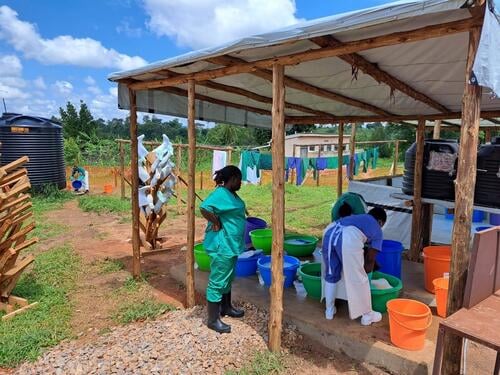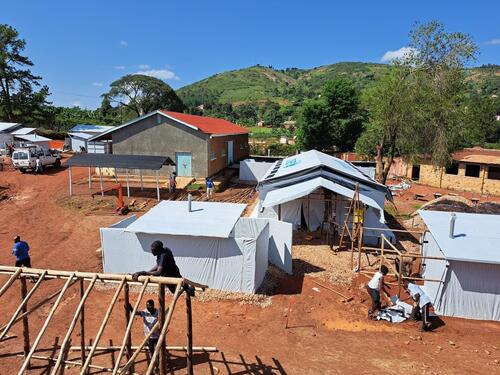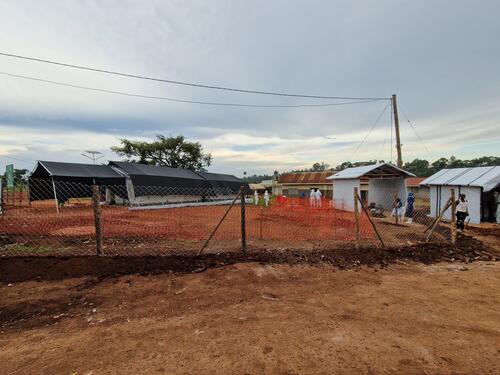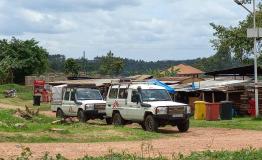The Ebola outbreak in Uganda was declared on 20 September. According to the Ministry of Health, as of 7 November: 136 cases have been confirmed, with 53 deaths and 61 people who have recovered.
Since the outbreak began, cases have been detected in a total of eight of Uganda’s 111 districts, including in the capital city. The government confirmed five cases on 23 October in Kampala, a packed urban centre.
What is Ebola?
Ebola is a serious and often deadly disease with a mortality rate of up to 90 per cent. Initial symptoms are similar to those of many other illnesses: a sudden onset of fever, fatigue, muscle aches, headache and a sore throat. These initial symptoms may be followed by vomiting, diarrhoea, a rash, symptoms of kidney and liver failure and, in some cases, internal and external bleeding.
Ebola was discovered in 1976 in Democratic Republic of Congo (DRC). There are several variants of the disease, with the Zaire strain being the most common over the past decade. The current outbreak in Uganda involves the Sudan strain. There have been seven outbreaks of the Sudan strain since the virus was discovered: four in Uganda and three in Sudan. The last Ebola outbreak in Uganda was in 2019; the last Ebola outbreak involving the Sudan strain was in 2012.
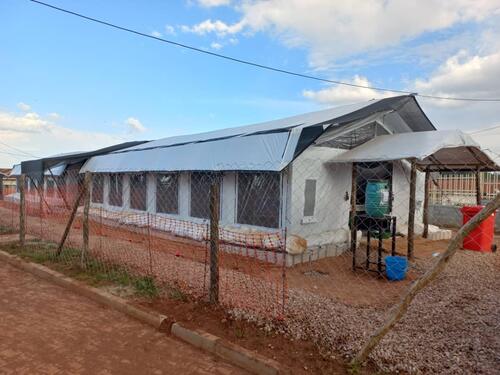
The absence of a vaccine
There is no vaccine for the Sudan strain of the virus, which is responsible for the outbreak in Uganda. However, two vaccines should enter soon into clinical trials under the management the World Health Organisation (WHO): one developed by Oxford University, which has shown to induce an immune response to both the Sudan and Zaire strains in Phase 1 trials. The other vaccine has been developed by Sabin Vaccine Institute.
With the current Ebola outbreak in Uganda, all health organisations involved in the response will have to do without this tool until trials have been conducted and an effective vaccine has been found. We are ready to assist in this research and have expressed our availability to WHO.
The key to survival
A big issue is the late arrival of patients. This is why it’s important to receive people early and to be aggressive in their clinical management. This is key to the survival of the patient.
“If I can get you at day two or three of the disease, the studies show that the chance of survival increases,” says Dr Ruggero Giuliani, MSF doctor at the Ebola treatment centre in Mubende, Uganda.
“It’s very hard when you realise that your patient will not survive. They are not going to make it. You can try your best, but when they have severe symptoms, there is no chance,” says Dr Giuliani.
“On the other hand, every time you have a survivor who comes out, it's joyous. We took out six survivors from the Ebola treatment centre the other day and it was amazing. In terms of a coping mechanism, this helps a lot.”
MSF first worked in Uganda in 1986. Today, our teams provide HIV care and support victims of sexual and gender-based violence. We also offer sexual and reproductive health services tailored to younger patients’ needs in our Kasese Youth Clinic.
We supported the national COVID-19 response with triage, testing, vaccinations for patients with co-morbidities, and providing treatment at Arua regional referral hospital and Entebbe hospital. Our teams also vaccinated 270,000 people in Kasese.
Between April and September 2022,our teams provided emergency medical and humanitarian aid to around 18,000 Congolese refugees in the Nyakabande transit camp in Uganda, who had fled the clashes between the army of the Democratic Republic of Congo and the M23 rebel group in the border region of North Kivu.



